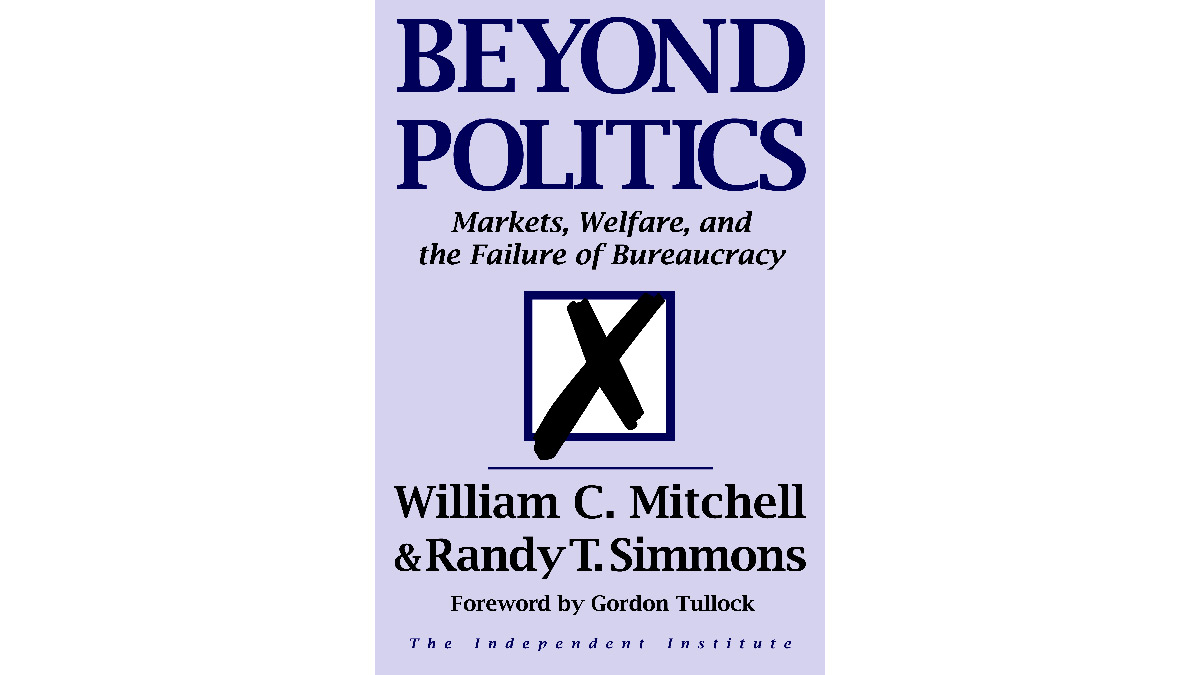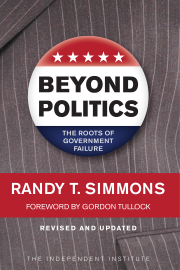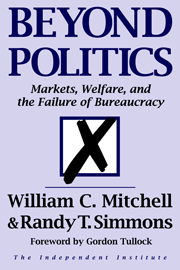Many problems in public life are beyond the ability of the political system to solve. Yet whenever those kinds of problems are discovered, it seems that somewhere there is a politician or bureaucrat who is foolish enough to propose that the government try to “fix” them. In fact, knee-jerk government interventionism has long been rationalized by oversimplified doctrines taught in American colleges and universities.
Traditional public policy and “welfare economics”—two influences on many aspiring politicians and bureaucrats—provide excuses for government intervention whenever markets are alleged to have “failed.” But reality isn’t so accommodating. Government failure can—and usually does—lead to a waste of tax dollars and make the original problem far worse.
The lesson may be hard to learn, but not because it is inherently complex. The root problem is one of temptation and myopia: we keep asking more of political institutions than they can handle well, and we invent excuses for their shortcomings even though those shortcomings are inherent in their design.
To craft viable solutions to public-policy problems, the first rule-of-thumb is to recognize that politicians will not necessarily act in the public interest. Their overriding incentives are to win elections, not solve problems. The difference may in principle seem minor (after all, we want politicians to solve problems), but it is not. Problem-solving can be deferred or pushed onto other politicians’ constituents (including future generations). Also, pseudo-problems can be manufactured out of whole cloth so that their proposed “solutions” will benefit a special interest.
The second rule-of-thumb is to recognize that even if politicians faced strong incentives to serve the public interest, in important respects they lack the knowledge necessary to achieve this lofty goal.
“The public” is merely the totality of the millions of people who make up a society, each with differing and changing preferences and goals. And only a few basic services serve everyone’s interests. The provision of law and order may be one of them, but even here we find that government officials seem to possess limited knowledge of how to deliver those services quickly and effectively.
If the “incentive problem” encourages politicians to bite off more than they can chew, the “knowledge problem” prevents them from digesting it. The analogy isn’t perfect, but it suffices to convey why our political system is bloated and dysfunctional.
One of the worst examples of the ill effects of government intrusion into the free market is the mounting national debt. Independent Institute Research Fellow and MyGovCost.org Director Emily Skarbek recently wrote in the Washington Examiner: “While politicians have been spending profligately on . . . special interests, public debt has increased by at least $500 billion per year every year since 2003.”
Yet despite those huge amounts of spending—the cost of government interventions that were supposed to correct alleged “market failures”—the American economy remains stagnant, unemployment remains high, and millions of Americans remain at the mercy of a federal government operating without a budget.
How should Americans begin to get out of the current economic malaise? In my book, Beyond Politics: The Roots of Government Failure, I offer a two-fold remedy: Eliminate the federal constraints that have hindered production and exchange, and search for ways to remove politics from problem-solving.
In this election year, we should demand less government intervention and more freedom from those lobbying for our votes. Rather than ask, “how can government help?” we should ask, “how can government get out of our way so that we can solve our own problems?” Answering that question will enable us to make the best use of the most valuable services of all: human ingenuity and initiative.













